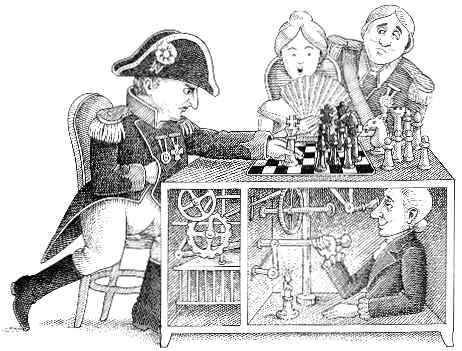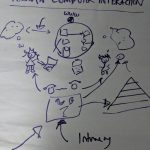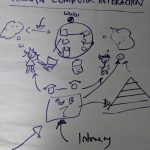In 1996, I listened to Lotfi Zadeh, inventor of fuzzy logic, give his keynote speech at the ‘Artificial Intelligence in Design’ conference, Stanford University. He described the excitment of artificial intelligence in the 1970s and how Marvin Minsky, who first proposed frames, told a press conference that 50 years on, computers would read and understand Shakespeare. When Zadeh asked Minsky what possessed him make such a claim, Minsky said that he didn’t know, he had just gotten carried away.
Today, fifty years on, computers are everywhere and can read Shakespeare, if not understand it. Computers are clever. This week, Gramaphone magazine reported how iTunes identified Joyce Hatto’s playing of Rachmaninov piano concertos as a recording by Yefim Bronfman. This forced a confession from Hatto’s husband. He had been passing off other peoples’ recordings under his wife’s name.
Everyday we come into contact with sophisticated computers which fly aeroplanes, run chemical plants and save lives in hospitals. However, there are more times in a day when we come into contact with computers and their owners who are not sophisticated.
I remember wanting my middle name (April -oh yes!) to be on a degree certificate. The secretary in charge of the computer was adamant that I didn’t have a middle name because it wasn’t in EPFL‘s database. Another day I couldn’t buy a bottle of wine in an off-licence because its electronic representation hadn’t yet found its way into the till. The cashier couldn’t sell me it.
Everyone has similar stories to tell. Comedy show ‘Little Britain‘ has a series of ‘computer says no’ sketches which are the same every week: someone goes into the bank/travel agents and asks for something. Carol Beer types away on her keyboard for ages only to say, ‘computer says no’.
If it is not in the computer you can’t have it, even when you know it can be done and you have had that service before. The problem is that these systems are built without any flexibility and sometimes you wonder whether the developers thought about how the system was to be used – not just what it would do. Only expert users find out how to do the thing the customer has asked for. The novices just sit their twiddling their thumbs and say no.
I have studied many users who are experts. They know their computer system and have tenaciously found ways to get the system to do what they want it to do. Watching these people struggle with the tool that is supposed to support them is when I gave up on artificial intelligence and moved into human-computer interaction. I don’t want my computer to read and understand Shakespeare. I can do that myself. Instead, I want my computer to support me in the tasks I can’t do easily. For example, when I want to find a particular Shakespearian quotation.
The information inside a computer is in a closed world. It can only reason with what it knows. Since it is often representing the real world which is constantly changing, the person in charge of it should be able to constantly update the information so that the virtual represents the real. The interaction here is key and often doesn’t exist because it is very difficult to formulate the capture of information that doesn’t yet exist. What is it? What does it look like?
Until we solve this problem, computers will make users look stupid and as we depend more and more on computers the problem will only get worse. Architect Daniel Liebskind describes in his autobiography his horror that the majority of the architecture students he comes into contact with today cannot draw without a computer. Because of their dependence they have difficulty understanding the graphic and spatial problems designing a building can present. They choose a computer because it saves them time when they need to make changes. But like most things in life there is a price to be paid. These future architects cannot draw by hand.
At some point we need to realise that not everything can be replaced by automation. We need skills. In the 1970s a team of computer scientists at Stanford University, developed MYCIN an expert system. MYCIN was designed to diagnose and recommend treatment for certain blood infections. The team realised that what they were trying to do was so complex some of them went off to retrain as doctors so that they could develop the system properly. Just because they were putting information in a computer it didn’t mean that it was accurate or useful. You need human experts with experience to tell you that. Better still you need them to be in charge of what goes into the computer and to tell you what the future of their expertise will look like.







computers are indeed destroying our mental capacity to think and reason. we constntly rely more heavily on computers to solve our problems which were at the past, solved by human intelligence; not computer-inteligence.